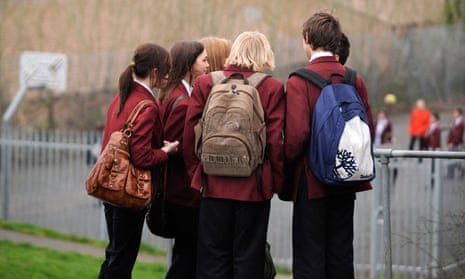I am a boarding school survivor and, after more than 50 years of silence, a witness to the Truth Project that was set up as part of the independent inquiry into child sexual abuse (IICSA). It’s good to see the inquiry’s recommendations, especially on mandatory reporting and a redress scheme that will help some, although not me (Inquiry calls for new offence in England and Wales of failing to report child abuse, 20 October).
But it is disappointing that elite institutions and their abusive culture will once again escape real reform. There’s no recommendation on ending early boarding (pre-adolescent), even though its harmful breaking of attachment bonds is recognised as a major factor in the ongoing traumatic effects of institutional sexual abuse (in my case this was forced nudity, lack of privacy and shaming).
There’s no recognition that early boarding is a choice, not a necessity like a care placement. Am I surprised? No – boarding education is a lucrative industry with influence. A few years ago, Boris Johnson said that money spent on non-recent investigations into child abuse was being “spaffed up a wall”. From where in his boarding-school-damaged psyche did that comment come? As his unravelling legacy dominates the news, I feel once again ignored.
Name and address supplied
It is to be welcomed that IICSA has highlighted the sexual abuse – and also other abuse and neglect – that many thousands of children have suffered in England and Wales over past decades. However, that the inquiry makes a mandatory reporting law the central plank of its recommendations reflects its failure – and that of wider society – to appreciate the dire state of child protection in the UK today.
As I wrote in the magazine Professional Social Work earlier this year, health visitor and school nurse numbers have been cut by one-third during austerity; hundreds of children’s centres have closed; police services are unable to scrutinise all of the digital devices they seize from suspects in child sexual abuse cases, due to a lack of resources; and delays in cases coming to trial have increased by five months over the last three years and now stand at a staggering one year and 10 months.
It is unclear whether a mandatory reporting law would help address child abuse and neglect, but prioritising this very secondary measure and not the profound crisis afflicting the country’s child protection system is negligent at best and wilful at worst.
Dr Bernard Gallagher
Independent child protection specialist
IICSA’s proposed ban on pain-inducing restraint in custodial institutions in which children are detained is essential. But this ban on restraint needs to go beyond just young offenders. Across the UK, innocent children in care are being routinely handcuffed and restrained when being transported between care settings. The Hope Instead of Handcuffs campaign has been leading calls for this practice to be banned. And at the very least, we need to increase transparency and accountability to ensure that all transport organisations that use handcuffs on children in their care report these instances of restraint to local authorities.
We have been calling on the UK government to follow the lead of the Welsh government, which has introduced the Reducing Restrictive Practices Framework to protect vulnerable children from harmful handcuffing and restraint practice. This makes Wales the only nation in the UK to address the brutal practice of physical restraint being used against vulnerable children during transportation.
Emily Aklan
Chair, Hope Instead of Handcuffs









